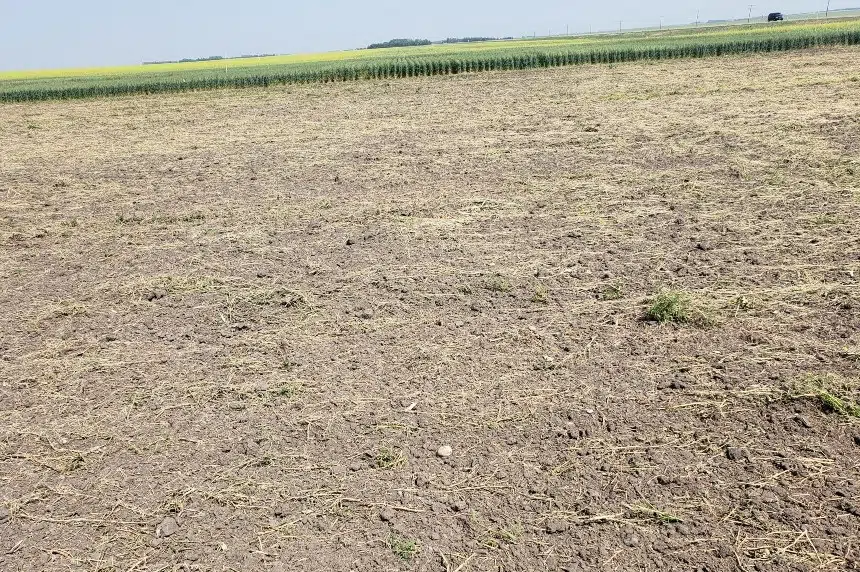Recent rainfall will not benefit drought-stricken farmers, says a crop expert from the province’s Ministry of Agriculture.
“It’s far too little and far too late to change anything right now. Any good rain that we get on any pastureland or some hay land, that’ll help those grasslands to recover a little bit. But for annual crops, it’s kind of set in stone,” said Matthew Struthers, a crop extension specialist.
Struthers said the rain arrived about a month late, not enough time for cereals, pulses and oilseeds planted in the spring and set to be harvested in the fall. Had the moisture came in early July, it would have been “a much different season.”
Crops seeded late, past early May and into June, are further behind in development.
“The hope is with late seeded crops in a year like this, they might have gotten more benefit from the rain. But unfortunately … it was just so dry that even those crops won’t see any benefit to the rain,” Struthers said.
Rain during harvest can also affect the quality of the crops but Struthers hasn’t heard of any problems.
Topsoil moisture levels remain low. The most recent crop report has the vast majority of the province rated between “short” and “very short.” “Scratching the bottom of the barrel,” as Struthers described it.
Any rain would help replenish moisture in the most productive part of the soil, where the bulk of organic matter and nutrients are found. The more rain, the better for next year, he said. But it can’t all come at once.
He compared parched fields to concrete. If you were to pour a bucket of water onto it, the moisture would just run off.
“So the rain we need after harvest during the fall needs to be a good constant volume over a series of days. And then it needs to rain and rain and rain until we’re all nice and filled up going into the next year,” he said.
Struthers said the rain won’t be much help to livestock producers either. It takes a lot of water to refill dugouts, creeks and other sources.
“We just haven’t had a good dump of rain to really fill things up,” he said. “So it’s been a very, very stressful and very concerning season for a lot of livestock producers in the province.”











